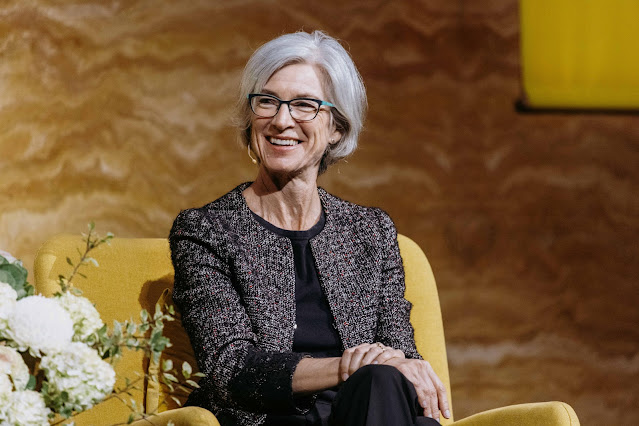Jennifer Doudna – The Woman Who Rewrote Life

Full Name: Jennifer Anne DoudnaDate of Birth: February 19, 1964Place of Birth: Washington, D.C., USANationality: AmericanProfession: Biochemist, Geneticist, ProfessorKnown For: Co-inventor of CRISPR-Cas9 gene editing technology
Early Life and Education
Jennifer Doudna was born in Washington, D.C., and raised in Hilo, Hawaii. Her father, a literature professor, and her mother, a teacher, encouraged her intellectual curiosity from a young age. Inspired by the book The Double Helix by James Watson, Doudna became fascinated with the mysteries of DNA and molecular biology.She pursued her undergraduate studies at Pomona College before transferring to Harvard University, where she earned a Ph.D. in biological chemistry and molecular pharmacology. Her postdoctoral work at Harvard and later Yale set the foundation for a remarkable scientific career focused on RNA biology.
Career Milestones
Jennifer Doudna’s research centers on RNA, a molecule once overshadowed by DNA but now recognized for its versatile biological functions. She became a professor at the University of California, Berkeley, where her groundbreaking work on RNA led to an extraordinary discovery.
In 2012, alongside Emmanuelle Charpentier, Doudna co-published a paper describing a revolutionary gene-editing tool: CRISPR-Cas9. This system, adapted from a natural bacterial defense mechanism, allows scientists to "cut and paste" DNA with unprecedented precision. The discovery was hailed as one of the most significant advances in the history of molecular biology.
CRISPR and Its Impact
CRISPR-Cas9 has transformed genetic research and medicine. It has enabled:
The correction of genetic mutations causing diseases like sickle cell anemia
Agricultural innovations, including disease-resistant crops
Potential treatments for cancer, HIV, and even inherited blindness
While the technology offers immense promise, it also raises ethical questions—particularly around gene editing in embryos. Doudna has been a vocal advocate for responsible use of CRISPR, calling for international dialogue and regulatory frameworks.
Recognition and Awards
Jennifer Doudna has received numerous accolades, including:
Nobel Prize in Chemistry (2020) – Shared with Emmanuelle Charpentier for the development of CRISPR-Cas9
Breakthrough Prize in Life Sciences
Time 100 Most Influential People
Lurie Prize in Biomedical Sciences
Her work has positioned her not only as a leading scientist but also as a prominent public voice on biotechnology’s future.
Educator and Entrepreneur
In addition to her academic role, Doudna is a co-founder of several biotech startups aimed at translating CRISPR research into clinical applications. She also teaches and mentors at UC Berkeley, inspiring the next generation of scientists.
She has co-authored the memoir A Crack in Creation, which details the discovery of CRISPR and its implications, blending scientific insight with personal narrative.
Ethical Leadership
What sets Doudna apart is her insistence on ethical stewardship. When a Chinese scientist used CRISPR to genetically modify twin embryos in 2018, Doudna was among the first to denounce the experiment, underscoring the need for caution, transparency, and regulation.
She has helped lead international summits and contributed to global policy discussions, stressing the importance of consensus before deploying powerful technologies that affect humanity’s genetic future.
Legacy and Vision
Jennifer Doudna’s legacy is twofold: as a pioneer who made gene editing possible, and as a scientist deeply concerned with how that power is used. Her vision is one of innovation tempered by integrity—a world where gene editing heals rather than harms, empowers rather than exploits. She continues to work at the intersection of science, ethics, and education, championing a future where CRISPR is used wisely to improve lives while respecting the complexity of life itself.



Comments
Post a Comment